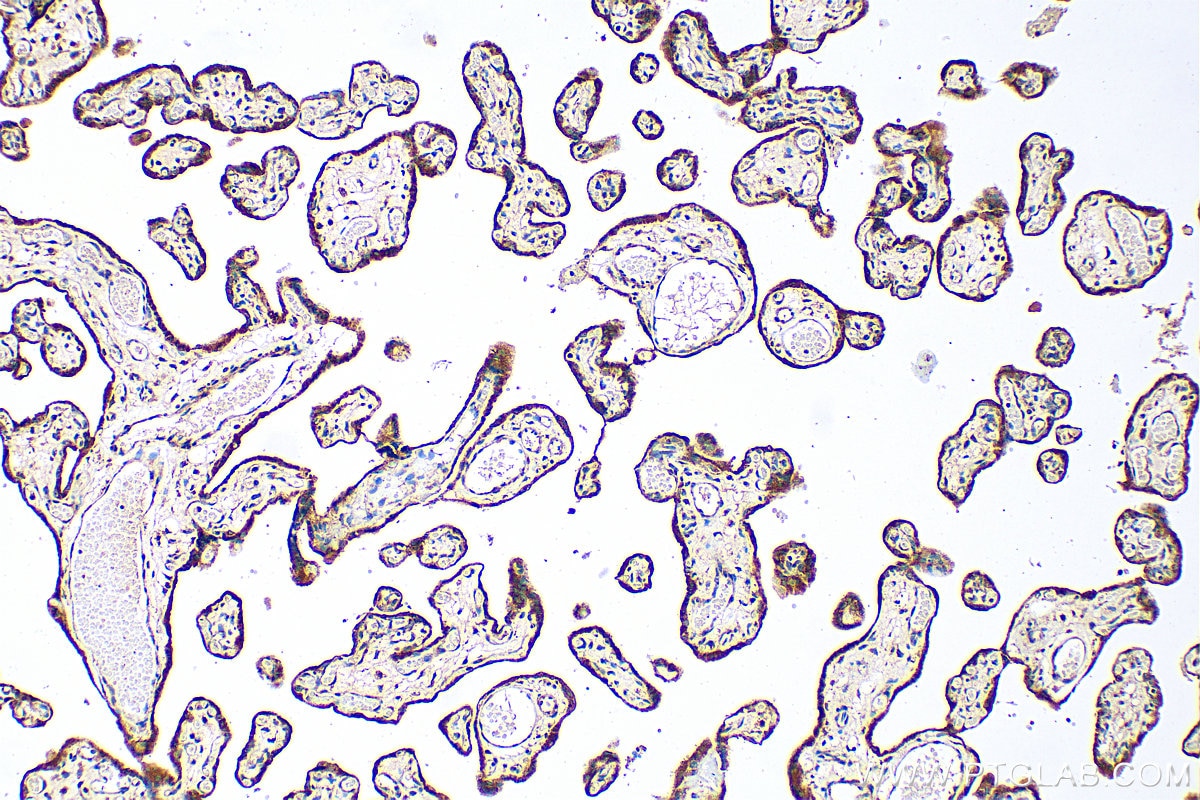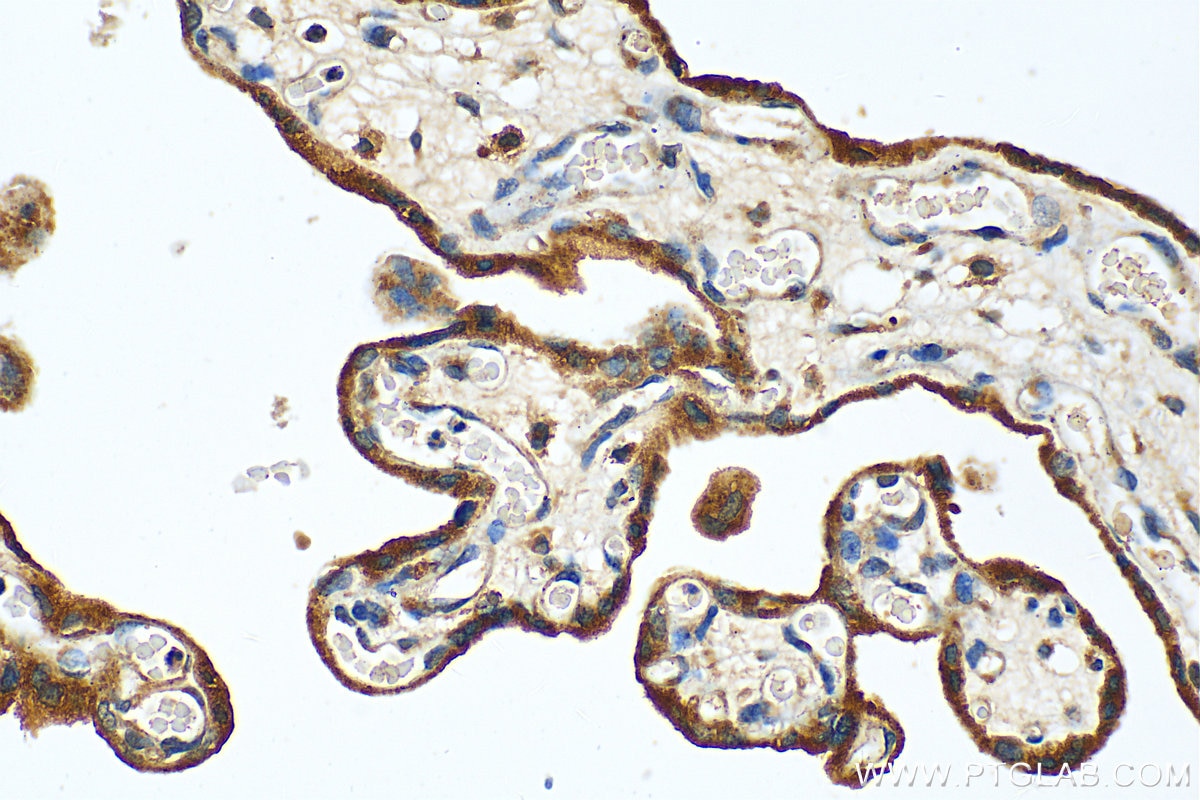SLC39A9 Polyklonaler Antikörper
SLC39A9 Polyklonal Antikörper für IHC, WB, ELISA
Wirt / Isotyp
Kaninchen / IgG
Getestete Reaktivität
human
Anwendung
WB, IHC, ELISA
Konjugation
Unkonjugiert
Kat-Nr. : 17607-1-AP
Synonyme
Galerie der Validierungsdaten
Geprüfte Anwendungen
| Erfolgreiche Detektion in WB | HUVEC-Zellen |
| Erfolgreiche Detektion in IHC | humanes Plazenta-Gewebe Hinweis: Antigendemaskierung mit TE-Puffer pH 9,0 empfohlen. (*) Wahlweise kann die Antigendemaskierung auch mit Citratpuffer pH 6,0 erfolgen. |
Empfohlene Verdünnung
| Anwendung | Verdünnung |
|---|---|
| Western Blot (WB) | WB : 1:500-1:2000 |
| Immunhistochemie (IHC) | IHC : 1:50-1:500 |
| It is recommended that this reagent should be titrated in each testing system to obtain optimal results. | |
| Sample-dependent, check data in validation data gallery | |
Produktinformation
17607-1-AP bindet in WB, IHC, ELISA SLC39A9 und zeigt Reaktivität mit human
| Getestete Reaktivität | human |
| Wirt / Isotyp | Kaninchen / IgG |
| Klonalität | Polyklonal |
| Typ | Antikörper |
| Immunogen | SLC39A9 fusion protein Ag11752 |
| Vollständiger Name | solute carrier family 39 (zinc transporter), member 9 |
| Berechnetes Molekulargewicht | 307 aa, 32 kDa |
| Beobachtetes Molekulargewicht | 25 kDa |
| GenBank-Zugangsnummer | BC047682 |
| Gene symbol | SLC39A9 |
| Gene ID (NCBI) | 55334 |
| Konjugation | Unkonjugiert |
| Form | Liquid |
| Reinigungsmethode | Antigen-Affinitätsreinigung |
| Lagerungspuffer | PBS mit 0.02% Natriumazid und 50% Glycerin pH 7.3. |
| Lagerungsbedingungen | Bei -20°C lagern. Nach dem Versand ein Jahr lang stabil Aliquotieren ist bei -20oC Lagerung nicht notwendig. 20ul Größen enthalten 0,1% BSA. |
Hintergrundinformationen
Zinc transporter ZIP9 subfamily (SLC39A9) encodes a protein with characteristics of a membrane androgen receptor (mAR). Human ZIP9 is a 307-amino acid protein, which has eight putative transmembrane domains. ZIP9 has also been identified and characterized as a resident protein in the Golgi in DT40 and HeLa cell lines (PMID: 19420709, 23505453). ZIP9 may be present on the cell surface, as well as nuclear and mitochondrial membranes, in human breast and prostate cancer cell lines, where it mediates testosterone induction of apoptosis (PMID: 29952128). knockout of ZIP9 would lead to zinc accumulation in the secretory pathway, which could influence the general ion homeostasis and in turn the glycosylation outcome (PMID: 36648436).
Protokolle
| Produktspezifische Protokolle | |
|---|---|
| WB protocol for SLC39A9 antibody 17607-1-AP | Protokoll herunterladen |
| IHC protocol for SLC39A9 antibody 17607-1-AP | Protokoll herunterladen |
| Standard-Protokolle | |
|---|---|
| Klicken Sie hier, um unsere Standardprotokolle anzuzeigen |




